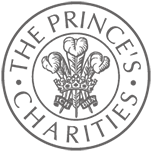The Vice-Chairman of the Council of Christians & Jews (CCJ) marked the organisation’s 70th Anniversary with an opinion article on the role of faith and the rise of secularism within society.
The article was originally published in the L’Osservatore Romano and the Catholic Herald.
Seventy years ago the Council of Christians & Jews was founded in London during the dark days of WWII, before the tide had turned and before the full horrors of the ‘Final Solution’ had emerged.
If the need for inter-faith dialogue and respect were clear to the Council’s founders in 1941, the shameful secrets of liberated Europe – at Auschwitz, Sobibor and Treblinka – confirmed their fears as the realities of untrammelled religious and ethnic hatred were exposed.
Conscious, as we are of our origins, last week the Council gathered to mark the beginning of its anniversary year, joined by our patron, Her Majesty the Queen, Lord Sacks, the Chief Rabbi, Bishop of Manchester Rt. Rev Nigel McCullough and Archbishop Gregorios, the leader of the nation’s Orthodox Christians.
We were also mindful, though, that modern-day faith communities and society at large face new and additional challenges which would perplex and dismay our predecessors.
This week we met not just to reaffirm the close ties that bind the faithful together, but also to discuss the apparently parlous state of faith in our increasingly secular United Kingdom. Fittingly, we met at Crosby Hall, the former London residence of Sir Thomas More – Tudor statesman, author and theologian. He was also, of course, a martyr, victim to sixteenth century-style religious and political intolerance.
I was struck, though, that for nearly all of the half millennium in which Crosby Hall has provided a home, those who graced its rooms took for granted their place in Christendom. They lived in an age of belief were the out-workings of church life reached into every nook and cranny of society. Today we still live in an age of belief, but, increasingly, that belief has been displaced from the spiritual to the temporal, from manna to mammon.
Of course, the reality of spiritual life in previous eras causes much discomfort for the modern mind. Although the intent may not have been to “make windows into men’s souls”, that is what happened – with church and state placing unbearable curtailments on the freedom of the individual. Thankfully, we have left such intolerance behind, but I fear that in the process our generation has abandoned its spiritual heritage.
Everyone believes in something, it’s part of the human condition, and what we believe in internally, ultimately affects our external behaviour. It is through that perspective that I view the more evident failings of modern Britain – be it the scenes of rioting and looting this summer or the prevalence of a corporate culture in some of our leading firms where reward seems to bear little reflection upon performance.
What is their personal value system? What spurs on their lack of concern for those around them? In what do they place their faith? I fear that they – and we all – have been failed by a secular society which has placed its faith in the cult of the individual and in rights without responsibilities.
With some notable exceptions amongst ethnic communities the chaos depicted an astonishing lack of social infrastructure. All over our urban centres we need local people who will be role models and guide young people desperately seeking leadership.
In the past faith has provided us with such people in every parish, temple & mosque. Leaders who understood the community, its needs, its desires, and its weaknesses. We still have those missionaries embedded at the heart of our society and in our time of need we must turn to them again.
I believe that God created us in His image, with an impetus to seek life and meaning beyond ourselves. He meant us to find that external purpose in Him, but we all have fallen short of the ideal.
Faith matters not just for individuals, but for communities and society. Faith has helped shape almost every aspect of our national and private lives – schools, hospitals and orphanages – are all manifestations of that faith. Faith, therefore, is not an ephemeral abstract, it is the solid theoretical foundation upon which practical action is built. If faith is allowed to rot, then the actions which flow from it will similarly decay. Hollowing out the foundation of faith will fracture our society.
As the Prime Minister has noted: “Faith is part of the fabric of our country. It always has been and it always will be… faith is not a problem for legislators to solve but rather a vital part of our national conversation.”
For its part, The Council of Christians and Jews has been developing that conversation between communities of the faithful. As Britain’s oldest national inter-faith organisation, we have been working for the past seventy years to promote religious and cultural understanding between Christians and Jews, and to eliminate religious and racial prejudice.
Such has been the advance of aggressive secularism though, I am increasingly concerned that the decline of faith in God is unpicking many of the strands which bind our communities together and which bring depth and meaning to our being.
With trademark eloquence the Chief Rabbi, Lord Sacks illustrated how this secularism has been bound-up with a rampant consumerism. He argued that the values of a consumer society are really not ones people can live by in the longer term. When talking about the effect of the consumer ethic on the individual he was right when he said “It makes you aware all the time of the things you don’t have instead of thanking God for all the things you do have”.
However, he pointed to a potent response, the concept of ‘shabbat – the world of faith’ established for millennia in the Jewish tradition, but replicated across many of the world’s faiths. The notion of resting and returning oneself to those things that are important be they family, friends or faith, these are constants which the human spirit relies upon.
Faith acts as a break on the destructive tendencies we all have to be self-serving and introspective. Faith matters because it prepares us, not just for the life beyond, but for the here and now, where we can make a real and lasting difference to society.
Reflecting upon the last 70 years, The Council of Christians & Jews can be proud of its record in increasing interfaith cohesion. Today as we survey the challenges of the 21st Century we know it is these bonds of friendship and understanding that provide the strength for us all to stand fast and resist the tide of secularism within society.
Link to article in Catholic Herald: Archives





